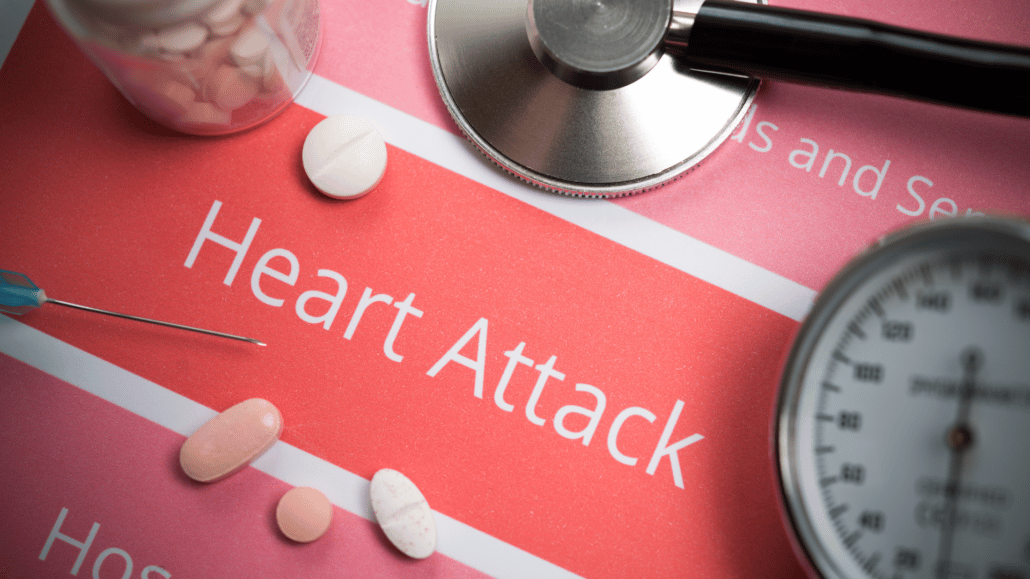
A heart attack is a serious medical emergency that occurs when the blood flow to a part of the heart is blocked, causing damage to the heart muscle. While most heart attacks are accompanied by clear and noticeable symptoms, such as chest pain and shortness of breath, some heart attacks, known as silent heart attacks, may not have any obvious symptoms at all.
Silent heart attacks, also known as asymptomatic or “silent” myocardial infarctions, can be just as dangerous as heart attacks with symptoms and can even lead to death. It is important to be aware of the signs of a silent heart attack and to seek medical attention if you think you may be experiencing one.
Here are some common signs of a silent heart attack:
Chest pain or discomfort:
While chest pain is often the most common symptom of a heart attack, some people may experience a more subtle form of chest discomfort during a heart attack. This can feel like a tightness or pressure in the chest, and may be accompanied by pain in the arms, neck, jaw, or back.
Shortness of breath:
Difficulty breathing is another common symptom of a heart attack, but it may be less noticeable during a silent heart attack. You may feel short of breath during physical activity or when you are at rest.
Fatigue:
If you are experiencing a silent heart attack, you may feel extremely tired or exhausted, even if you have not been physically active. This can be a result of the heart not pumping blood effectively due to the blockage in the coronary artery.
Nausea:
Some people may experience nausea or vomiting during a heart attack. This can be caused by the increased heart rate and blood pressure that can occur during a heart attack.
Sweating:
Sweating is another common symptom of a heart attack, and it may be more noticeable during a silent heart attack as it is often one of the only noticeable symptoms.
Heart palpitations:
If you are experiencing a heart attack, you may feel a racing or skipping sensation in your heart. This can be caused by the heart trying to compensate for the lack of oxygenated blood flow due to the blockage in the coronary artery.
Dizziness:
Dizziness or lightheadedness can also be a sign of a silent heart attack. This can be caused by a decrease in blood flow to the brain due to the blockage in the coronary artery.
It is important to note that not all heart attacks have the same symptoms, and some people may not experience any symptoms at all. If you have any of the above symptoms, or if you are experiencing any other unusual symptoms, it is important to seek medical attention as soon as possible.
Risk factors for silent heart attacks
There are several factors that can increase your risk including:
Age:
The risk of experiencing a silent heart attack increases as you get older, especially in men over the age of 45 and women over the age of 55.
High blood pressure:
High blood pressure is a leading cause of heart attacks, and it can increase your risk of experiencing a silent heart attack.
Diabetes:
People with diabetes are at an increased risk of experiencing a heart attack, as high blood sugar levels can damage the blood vessels and increase the risk of blockages.
Family history:
If you have a family history of heart disease, you may be at an increased risk of experiencing a silent heart attack.
Smoking:
Smoking increases the risk of heart attacks, and it can also increase the risk of experiencing a heart attack.
It is important to be aware of the signs of a silent heart attack and to seek medical attention if you think you may be experiencing one. In addition to being aware of the symptoms, it is also important to be aware of the risk factors for silent heart attacks. By taking steps to reduce your risk factors, such as quitting smoking and managing high blood pressure and diabetes, you can help to prevent a silent heart attack.
If you have had a silent heart attack, it is important to follow the treatment plan prescribed by your doctor.
This may include medications to help control risk factors such as high blood pressure and cholesterol, as well as lifestyle changes such as eating a healthy diet and exercising regularly.
It is also important to pay attention to your overall heart health. This includes getting regular check-ups and screenings, such as cholesterol tests and blood pressure checks, to help catch any potential issues early on. While silent heart attacks can be serious and even life-threatening, they are also treatable. By being aware of the signs and taking steps to prevent a silent heart attack, you can protect your heart health and reduce your risk of future heart problems. To seek proper medical advice from your doctor at an affordable price, contact a licensed agent at Healthedly now at 855-522-2201!







